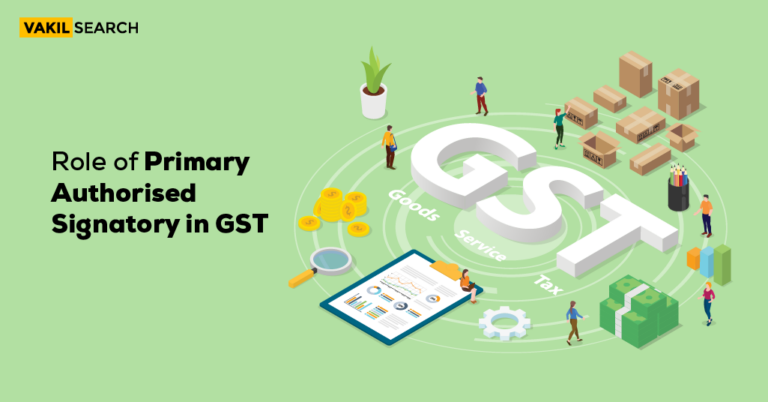Learn about the process and implications of GST registration cancellation in this comprehensive article. Discover the reasons businesses opt for cancellation.
Introduction
Under the Goods and Services Tax (GST) system, all businesses must report their inward and outward supplies. However, there are instances where businesses may opt to cancel their GST registration. This article aims to explore the reasons for such cancellations and the required procedures.
The cancellation of GST registration is a process through which the tax authority terminates a taxable person’s registration. This can occur either voluntarily, initiated by the taxable person, or involuntarily, initiated by the tax authority.
Various reasons may prompt businesses to cancel their GST registration. These include ceasing operations, business restructuring, falling below the turnover threshold, transferring ownership, or non-compliance with regulations.
For voluntary cancellation, the taxable person must apply through the GST portal, providing necessary details and reasons. In case of involuntary cancellation by the tax authority, a show-cause notice is issued, and the person can respond with clarifications or objections.
In cases of involuntary cancellation, the taxpayer may request revocation within 30 days of cancellation. This can be done through the GST site, ensuring a streamlined process for businesses seeking GST registration cancellation.
What is the Cancellation of GST Registration?
Under the Goods and Services Tax (GST) system, businesses are required to register mandatorily. However, there are circumstances under which the registration can be cancelled. The cancellation process is governed by Section 29 of the CGST Act, 2017, and can be classified into two categories: voluntary and involuntary cancellation.
Voluntary cancellation allows a registered person to apply for cancellation themselves. They must inform the proper officer in writing about their intention to cancel the registration, and after verification, the officer will cancel it.
On the other hand, involuntary cancellation can be initiated by the proper officer for specific reasons. These reasons include a continuous period of six months or more without filing returns or obtaining registration with false information.
Cancellation of registration has important implications. The person will no longer be eligible for input tax credit and cannot collect tax from customers. Therefore, understanding the grounds and implications of GST registration cancellation is vital before making any decision. Businesses should be aware of the rules and procedures to ensure compliance with the GST regulations.
Key Takeaways
- The cancellation of GST registration is a procedure through which a registered individual can terminate their registration.
- This is permitted in specific instances, such as when the registered person ceases to operate or is no longer required to be registered.
- The cancellation request can be submitted online, and it requires providing the GST number, PAN number, and other relevant details.
- Once the registration is successfully cancelled, the individual will be relieved from the obligation to pay GST on their supplies.
Why is Cancellation of Registration Required Under GST?
Cancellation of GST registration becomes necessary in various scenarios to ensure compliance and maintain the integrity of the system. Here are the cases in which registration must be cancelled:
-
Ceasing Business Operations:
If a registered person decides to cease their business activities entirely, they are required to cancel their GST registration to reflect their non-operational status.
-
Registration Obtained through Fraud or Misrepresentation:
If it is discovered that a person obtained their GST registration by providing false information or through fraudulent means, their registration must be cancelled.
-
Failure to File Returns for Three Consecutive Tax Periods:
Non-filing of GST returns for three consecutive tax periods is grounds for cancellation, as it indicates non-compliance with the tax obligations.
-
Guilty of a GST-Related Offence:
If a registered individual is found guilty of a GST-related offence, their registration may be cancelled as a punitive measure.
-
No Longer Requiring Registration:
If a business’s turnover falls below the threshold limit, making it no longer liable for GST registration, cancellation is necessary.
-
Business Location Shift to Another State:
When a registered person shifts their business location to another state, they must cancel their current GST registration and apply for a new one in the new state.
Drive your business with informed decisions! Access our GST Interest Calculator for precise tax insights and strategic planning.
How to Cancel Registration Under GST?
Cancelling GST registration is a straightforward process that requires careful consideration. To initiate the cancellation, the registered person needs to file Form GST REG-16 on the GST Portal. Here’s how:
- Step 1: Log-in to the GST Portal using the provided credentials.
- Step 2: Navigate to Services > Registration > Application for cancellation of registration option.
- Step 3: Choose the reason for cancellation from the drop-down menu and upload the necessary documents.
- Step 4: Pay the application fee of ₹500 online using the available payment options.
- Step 5: Once the application is filed, the concerned officer will process it and communicate the decision through the portal.
- Step 6: It’s essential to understand the implications of cancellation. If the registration is cancelled, the registered person must surrender their GSTIN and cannot collect GST from their customers. Additionally, they will lose the ability to avail input tax credit and will have to pay GST on their inward supplies.
Considering these consequences, cancellation of registration should only be done after ensuring compliance with all GST provisions. Businesses must carefully assess their situation and obligations before proceeding with the cancellation process.
Cancellation of Registration of a Taxable Person
GST Registration Cancellation can be initiated either voluntarily by the taxable person or at the direction of the authorities.
For voluntary cancellations, the taxable person must provide a notice of cancellation to the concerned authorities. This can be done when the person decides to cease their business operations, no longer requires GST registration due to falling below the threshold limit, or for any other valid reason.
On the other hand, the authorities can also direct a taxable person to cancel their GST registration. This may happen if the person has obtained the registration using fraudulent means, is involved in GST-related offences, or fails to comply with GST regulations.
In both cases, the cancellation of GST registration is an important step that must be followed as per the guidelines and procedures specified under the GST law. Whether voluntary or directed, it is essential to ensure compliance with the rules and notify the concerned authorities appropriately.
Cancellation of Registration of a Non-Taxable Person
Under the GST Act, individuals who are registered but not liable to pay tax, known as ‘non-taxable persons,’ have the option to apply for cancellation of their registration. The process for cancellation involves the following steps:
- Application for Cancellation: The registered person, who falls under the category of a non-taxable person, must submit a valid application for cancellation of their GST registration.
- Granting of Cancellation: Upon receipt of the application, the tax authority reviews the request and, if everything is in order, grants the cancellation of registration.Effective Date: The cancellation of registration takes effect from the date specified by the tax administration. This date is typically mentioned in the cancellation order issued by the authority.For non-taxable persons, cancelling their GST registration is a prudent step to avoid unnecessary compliance obligations and to ensure that they are in line with the provisions of the GST Act. By following the proper procedure and obtaining the cancellation from the tax authority, non-taxable persons can streamline their business operations and focus on their non-taxable activities without any GST-related responsibilities.
Effects of Cancellation of Registration
Cancellation of registration under the GST regime can significantly impact businesses, leading to several consequences that need to be carefully considered:
Loss of Input Tax Credits:
Upon cancellation, businesses lose the ability to claim input tax credits on GST paid for their purchases. This could result in increased costs and reduced competitiveness.
Imposition of GST on Previously Exempt Supplies:
Certain supplies might have been exempt from GST while the business was registered. However, after cancellation, those supplies may become taxable, potentially affecting pricing and profitability.
Loss of GST Concessions:
GST registration often provides businesses with various concessions and benefits. Cancelling the registration means losing access to these concessions, leading to potential financial implications.
GST on Stock on Hand:
At the time of cancellation, businesses may be required to pay GST on their existing stock, leading to additional tax liabilities.
Possibility of Penalties and Interest:
Non-compliance or improper cancellation procedures may result in penalties and interest charges imposed by the tax authorities.
Businesses considering the cancellation of GST registration should carefully assess the potential consequences and implications. Seeking professional advice and understanding the full extent of the impact can help businesses make informed decisions and mitigate any adverse effects on their operations and finances.
-
Conclusion
Understanding the grounds, procedures, and implications of GST registration cancellation is crucial for businesses. Whether voluntary or directed, it is essential to comply with the prescribed guidelines to ensure a seamless process and avoid adverse effects on operations and finances. Seeking professional advice can aid businesses in making well-informed decisions regarding GST registration cancellation.
FAQs
What is the time limit for GST revocation?
The time limit for GST revocation is 30 days from the date of GST registration cancellation.
Can GST be Cancelled automatically?
No, GST cannot be cancelled automatically. The cancellation of GST registration can only be initiated voluntarily by the taxable person or by the tax authorities based on specific grounds.
What happens if we stop filing GST?
If you stop filing GST returns, it can lead to penalties and interest charges for non-compliance. Additionally, the tax authorities may initiate the cancellation of your GST registration after a continuous period of non-filing.
Can I use a Cancelled GST number?
No, you cannot use a cancelled GST number for any business transactions. Once the GST registration is cancelled, the GSTIN becomes invalid and cannot be used for any GST-related activities.










